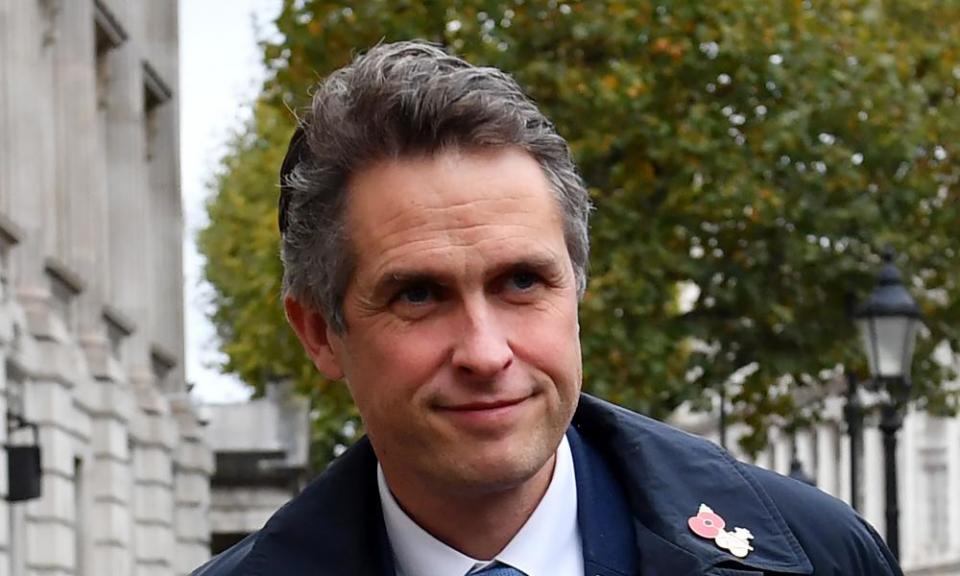Moonlighting MPs earn more than ever from second jobs, despite ‘crackdown’
MPs are making more than ever from second jobs despite promises from the government to clamp down on the practice, one year on from the Owen Paterson scandal, an Observer investigation has found.
Of the 129 MPs who made more than £2,000 from outside income between October 2021 and September 2022, 86 – including the former attorney general Geoffrey Cox – either earned more or the same amount than in the previous year.
Overall, MPs made more than £5.3m from outside work in that period, with many, including former cabinet ministers, taking on new roles as advisers and non-executives in the last year for companies that in several cases were run by major party donors.
Many have taken jobs in areas they used to oversee in government.
Former education secretary Gavin Williamson took on a role in June as chairman of the advisory board of RTC Education Ltd, a private education group whose chairman Maurizio Bragagni and chief executive Selva Pankaj are major Conservative party donors.
Williamson was set to earn £50,000 a year for a total of 80 hours’ work. The Observer understands he left the role in October after he was offered a position in Rishi Sunak’s cabinet, from which he has since resigned after bullying allegations.
Former social care minister Caroline Dinenage was appointed in March as an independent non-executive director of LNT Care Developments Group, a residential care home developer and constructor, a role worth £30,000 a year for 15 hours’ work a month.
LNT Care Developments Group founder and racing tycoon Dr Lawrence Tomlinson has donated at least £91,000 to the Conservatives and individual Tory MPs since 2017 directly and through LNT, according to the electoral commission.
Former universities minister Chris Skidmore saw his outside income rise from £10,960 to more than £62,000, thanks to a quadrupling of his salary from Oxford International Education Group, a private company that links foreign students with UK universities, when he was made a non-executive director in May.
Ex-transport secretary Chris Grayling earned £100,840 from outside work, largely from remaining in his £100,000 a year role as adviser to shipping company Hutchison Ports, for which he does seven hours of work a week.
Former attorney general Cox earned more than £1m in fees as a barrister, while Tory MP Fiona Bruce earned £281,415 from her legal work with Fiona Bruce and Co LLP.
Cox faced accusations last year of a conflict of interest, after it was revealed he had lobbied against tougher financial regulation on the Cayman Islands while earning tens of thousands of pounds from legal firms based in the tax haven.
In a statement, he told the Observer: “There is no conflict of interest between my work as a barrister and my role as a member of parliament” due to the impartiality that is “essential to the administration of justice”. He stressed that many MPs continue legal work while in parliament and the role was “no more time consuming and demanding than the role of attorney general” that he once held.
While she did not comment on the Observer’s findings, Bruce stressed over email that a large proportion of the money listed in her earnings this year and last was related to tax liabilities rather than her actual income.

Chris Bryant, chair of the Commons standards committee, told the Observer said he was “irritated” by the government’s lack of progress to even enact “simple recommendations” that could curb the impact of lobbying in parliament, while campaigners said the sanctions for MPs breaking rules needed to be tougher.
MPs’ second jobs were part of a major controversy a year ago, after the parliamentary commissioner for standards found then Conservative MP Owen Paterson had breached the ministerial code of conduct by misusing resources, engaging in paid lobbying and failing to disclose interests.
Evidence of Paterson’s lobbying was originally uncovered by the Guardian. Randox, a healthcare company, paid the former Northern Ireland secretary £100,000 a year to be its consultant. He was found to have lobbied ministers on behalf of Randox and another firm that paid him.
Apart from Cox and Bruce, the highest earners included former prime minister Theresa May and former and current ministers John Redwood, Andrew Mitchell and John Hayes, who all listed six-figure earnings in the last year.
Of the 247 MPs, 148 (or 59%) who listed any outside earnings last year were Tories, rising to 73% for those earning more than £2,000. Twenty-two of the 25 with the highest registered earnings were Conservatives.
“The standards committee completed its report months ago. We want to tighten the rules on second jobs to put an end to MPs acting as paid political consultants or strategists,” Bryant said. “We want to require MPs to have a contract for any outside work stating they cannot lobby ministers or officials on behalf of their clients.”
Susan Hawley, executive director of the charity Spotlight on Corruption, said: “Members of parliament are paid by the taxpayer to do a job – to represent the interests of their constituents. Unfortunately, the system we have today fails to properly ensure that MPs concentrate on the work they have been elected to do – that has to change.”

 Yahoo Movies
Yahoo Movies 